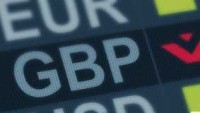 Here are the latest developments in global markets:
Here are the latest developments in global markets:
FOREX: The dollar index is a little lower on Thursday (-0.12%), extending losses from yesterday that were owed to disappointing US durable goods data and reports the Fed will debate whether to pause its hiking cycle early next year. The euro clawed back some of its recent losses, aided by optimism that the EU-Italy standoff will be resolved diplomatically.
STOCKS: Wall Street closed mostly higher on Wednesday for the first time this week, amid renewed optimism that a Sino-American “trade truce” may be on the cards. The tech-heavy Nasdaq Composite (+0.92%) outperformed the benchmark S&P 500 (+0.30%), while the Dow Jones was flat. US markets will remain closed for the Thanksgiving holiday today, so liquidity may be thinner than usual across all asset classes, setting the stage for sharp moves without any clear trigger. Asia was mostly higher on Thursday, with indices in Japan and Hong Kong advancing, but those in China and South Korea ticking lower. In Europe, futures tracking all major benchmarks were pointing to a lower open today.
COMMODITIES: Oil rebounded yesterday, recovering a small part of its recent losses, aided by stronger risk sentiment and a pullback in the dollar. The bounce came despite the EIA reporting another bigger-than-expected inventory build in its weekly report. Crude is on the back foot again today, with WTI trading at $54.30 per barrel and Brent near $63.00/barrel. In precious metals, gold is 0.17% higher today at $1,227 per ounce. The yellow metal continues to trade as a mirror image of the US dollar, showing little interest in any other factors. Technically, a decisive break above the downtrend line drawn from the peaks of May – which is being tested at the moment – and the $1,237 area, would turn the picture to firmly positive.
Global risk appetite recovered on Wednesday, with European and US equity markets advancing alongside commodity-linked currencies such as the aussie and loonie, while haven assets such as the Japanese yen surrendered ground. The key catalysts behind these moves were signs that Italy is ready to “blink” in its budget standoff with the EU, coupled with reports enhancing the narrative that a Sino-American “trade ceasefire” is looming.
In Italy, Finance Minister Tria hinted that his government would seek a shared solution with the European Commission over the highly-controversial budget, noting that the dispute is hurting the Italian – and by extent the European – economy. Investors evidently interpreted his comments as a signal that despite the broadly confrontational rhetoric, Rome is actually keen to avoid a prolonged and damaging showdown, sending Italian bond yields lower and the euro higher.
On the trade front, reports suggest White House advisor Peter Navarro has been excluded from attending the upcoming Trump-Xi Jinping meeting. Global stocks breathed a sigh of relief, as Navarro is probably the most hawkish US administration member towards China. Thus, his exclusion was seen as a sign Trump is indeed aiming to strike some deal. While a “ceasefire” next week now looks increasingly likely, and could provide some short-term relief to markets, it’s unlikely to spell the actual end of the broader dispute – as neither side appears ready to blink on the big issues just yet.
In the US, the dollar was pinned down by a story the Fed will consider pausing its hiking cycle early next year, citing “senior Fed officials”. Adding credence to such speculation, US durable goods disappointed, pointing to weak business investment in Q4. This is a rather ominous sign, because the latest collapse in oil prices argues for even weaker capital spending by energy firms going forward. That said, Fed rate-hike pricing is already quite cautious, implying that investors may want to see concrete evidence the US economy is slowing before repricing it in an even more dovish direction.

Thursday’s a light calendar day, with US markets being closed for the Thanksgiving holiday, something which is translating into thin trading volumes. That said, the ECB minutes pertaining to its latest meeting will be attracting interest, with the themes of Brexit, the EU-Italy budget standoff and the Sino-US trade dispute remaining at play.
The official record of the ECB’s October meeting will be made public at 1230 GMT. Market participants will be looking for any signals the Bank’s policymakers are getting less confident about their rate normalization plans in light of not-so-encouraging economic releases out of the euro area.
The previous guidance signaled a move towards the latter part of 2019. At the moment, markets have marginally moved away from completely pricing in a 10bps rate increase in late 2019 and it will be interesting to see if ECB members’ views lend credence to that. If that’s the case, then the euro is expected to depreciate, to state the obvious.
On the data-front, eurozone flash consumer confidence data for November due at 1400 GMT are anticipated to show the relevant index falling to its lowest since May 2017. For comparison, US consumer confidence as gauged by the Conference Board rose to a fresh 18-year high in October.
Also euro-related are developments having to do with Italy’s budget. The European Commission yesterday identified the country as being in serious non-compliance with the budget rules. Market participants’ anxiety was eased to an extent though, as Italian PM Conte expressed concerns about rising Italian government bond yields and committed to reforms. However, investors may be complacent to an extent on this front, as the prospect of an EU-Italy clash is well on the table.
Sterling is again expected to remain sensitive to any Brexit headlines. PM May made reference to progress after her meeting with the EU’s Juncker yesterday, though a few sticking points remain at play. May will be given some time on Sunday to address the EU heads of state at the extraordinary Brexit summit taking place.
In terms of policymakers’ appearances, the Bank of Canada’s Wilkins (1445 GMT), the Bank of England’s Haldane (1600 GMT) and Saunders (2055 GMT), and the ECB’s Mersch (1700 GMT) are on the agenda.

EURJPY has been moving within a relatively narrow range lately. The RSI, which has been hovering around the 50 neutral-perceived level throughout this period, is projecting a mostly neutral short-term picture for the pair.
Should today’s minutes show a relatively dovish ECB, then the pair is expected to depreciate. A violation of the middle Bollinger line – a 20-day moving average line – at 128.61 would turn the attention to the area around a previous bottom at 127.85 for additional support – not far below this point lies the lower Bollinger band at 127.38. Lower still, 126.62, the pair’s lowest since August would be eyed.
On the upside and in case of an upbeat ECB, resistance could come around the current levels of the 50- and 100-day moving average lines at 129.46 and 129.70 respectively, with the upper Bollinger band (129.83) also being part of the region around them. Not far above is a previous top at 130.14, with the zone around in including the 130 mark and another high from previous months as 130.34. Even higher, the area around the 131 handle would increasingly come into scope.
EU-Italian relations and risk-off flows can also move the pair.
Origin: XM













